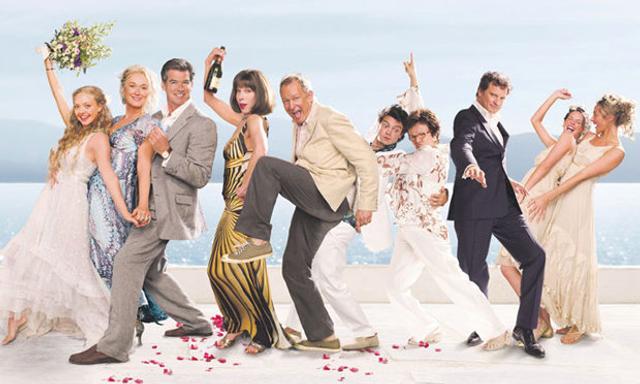It’s been a decade since ‘Mamma Mia!’, the hit West End and Broadway play, made its way onto the big screen. As well as being a stage spectacular, it quickly became a box office smash, making over $600m globally off a $52m budget. It evidently resonated particularly with Irish audiences, being the fourth highest grossing film in our box office ever, but how exactly did it become such a phenomenal success?
Like ‘We Will Rock You’, ‘Saturday Night Fever’ and ‘Jersey Boys,’, ‘Mamma Mia!’ belongs to the ‘jukebox musical’ subgenre, which constitutes musicals that feature popular songs by renowned artists rather than original music. The songs that define ‘Mamma Mia!’ are of course those by Swedish pop group ABBA and the feel-good, upbeat, catchy nature of them – even if the plot they were held together by was threadbare – was just one of the elements that made the movie such a success.
.jpg)
The importance of the original stage musical can’t be stressed enough given the movie adapted so many of its qualities. Aside from the music, the film borrowed its storyline, characters and joyous themes of celebration, friendship, love and family – simple, yes, but effective and crowd pleasing. The wedding party backdrop and Greek getaway setting gave the film the feel of a glorious summer holiday, making ‘Mamma Mia!’ an immersive experience of a pure escapist nature.

Of course, unlike the play, the standard of singing in ‘Mamma Mia! is far more varied and reliant on auto-tune thanks to its casting of big name stars rather than singers. The cast that were picked, however, were crucial to its success. Any movie is made immediately better by Meryl Streep’s presence, and where else are you going to find James Bond and Mr Darcy in the one film, and singing no less? Julie Walters of ‘Harry Potter’ fame and ‘Chicago’s Christine Baranski were perfect in the comic relief roles while Amanda Seyfried and Dominic Cooper were charming as the young, loved-up leads.

It’s worth noting that the middling quality of singing worked to the film’s advantage rather than its detriment (and indeed since the movie, films like ‘La La Land’ and ‘Les Mis’ have also cast actors who are not necessarily singers). It gave the film an accessible, communal feel – rather than holding back as the actors shine in the limelight, audiences could have fun singing along with the stars. ‘I can’t sing but neither can they so to hell with it’; the film was a karaoke party incarnate. The movie's communal feel is also evoked by the mixed ages that make up the film’s cast. It makes the movie one that all the family, young and old, can enjoy (there are even a few naughty adult jokes thrown in which are subtly disguised, akin to what you see in ‘Grease’).

It is ridiculously cheesy, its sets look totally artificial ten years on, and there are various very silly sequences, such as the titular ‘Mamma Mia!’ and ‘Lay All Your Love On Me’ numbers, the latter of which includes a sequence of bachelors dancing around in scuba flippers for no particular reason. Everything about it feels overcooked and gimmicky, and yet it couldn’t be more obvious why and how it absolutely works. Here’s to its endurance and to the sequel, which is sure to be just as if not more successful than the first, and make a silly amount of money.
See also: 15 years on... Pirates of the Caribbean: Curse of the Black Pearl









































































